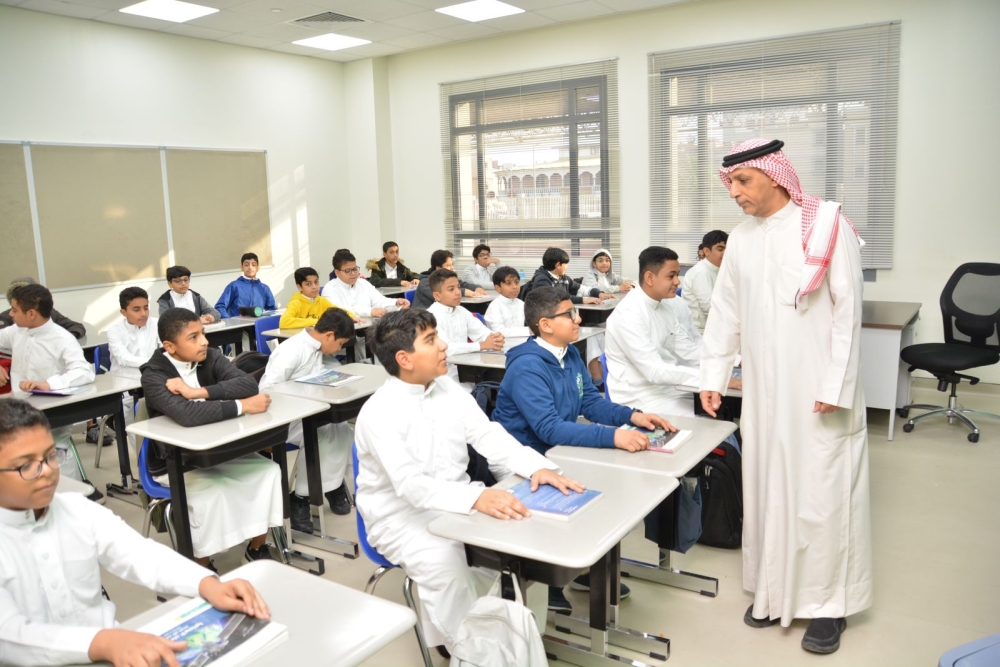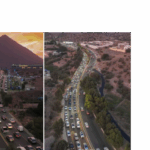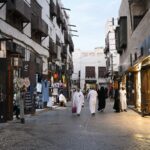The Ministry of Education confirmed that the approval of the two-semester academic system comes in light of the qualitative achievements realized during the implementation of the three-semester system, which represented a significant developmental step that helped establish a minimum of 180 school days annually—a standard aligned with the average school days in educationally advanced countries according to the OECD. It also aligns with the systems of G20 countries, where the number of school days ranges between 180 and 185, reaching up to 200 in some cases.
The Ministry praised the Cabinet’s approval of the two-semester system for public schools in the upcoming academic year 1447/1448 AH, while maintaining the previously approved general timeframe for the academic calendar for the next four years, including the periods marking the beginning and end of the academic year.
Strengthening Future Directions
The Ministry of Education explained that it conducted a comprehensive study with broad participation from specialists, educational leaders, teachers, students, and parents. The study aimed to evaluate the implemented models and strengthen future directions in line with the objectives of Saudi Vision 2030 and the Human Capability Development Program as one of its key initiatives.
The study concluded that improving the quality of education is not directly linked to the number of semesters but rather to the essential elements of the educational process. These include teacher qualification and motivation, curriculum development, enhancing the school environment, improving governance and institutional transformation, and monitoring compliance by granting schools greater authority and flexibility to serve as true agents of change—principles the Ministry follows within its comprehensive strategy.
The study also highlighted the importance of increasing flexibility in the academic calendar to accommodate geographical and cultural diversity, as well as the sustainability of student activities.
Enhancing Diversity and Flexibility
The Ministry noted its continued efforts to promote diversity and flexibility in certain schools and institutions, including private and international schools, universities, and the Technical and Vocational Training Corporation, allowing them to determine the most suitable academic system.
Additionally, education departments in Makkah, Madinah, Taif, and Jeddah have been granted authority to adjust schedules in consideration of the needs and requirements of Hajj, Umrah, and visitation seasons, ensuring integration with other government entities and fostering community engagement in these regions.
Ministry of Education
The Ministry of Education is a government department responsible for overseeing national education policies, schools, and academic standards. Its history varies by country, but many modern ministries were established in the 19th or 20th centuries to centralize and improve public education systems. For example, Japan’s Ministry of Education was founded in 1871 during the Meiji Restoration, while the U.S. Department of Education became a cabinet-level agency in 1980.
OECD
The **OECD (Organisation for Economic Co-operation and Development)** is an international organization founded in 1961 to promote economic growth, trade, and development among its member countries. It originated from the post-World War II **Marshall Plan** and replaced the Organisation for European Economic Co-operation (OEEC). Today, the OECD provides policy analysis, data, and recommendations on global issues like taxation, education, and climate change, with 38 member countries as of 2024.
G20
The **G20 (Group of Twenty)** is an international forum comprising 19 countries and the European Union, representing the world’s largest economies. Established in 1999 after the Asian financial crisis, it aims to promote global economic stability, sustainable development, and international financial cooperation. Leaders from member nations meet annually to discuss key economic and political issues, making the G20 a major platform for global governance.
Saudi Vision 2030
“Saudi Vision 2030” is an ambitious strategic framework launched in 2016 by Crown Prince Mohammed bin Salman to reduce Saudi Arabia’s dependence on oil, diversify its economy, and develop public service sectors like health, education, and tourism. The plan includes major projects like NEOM, a futuristic smart city, and aims to transform the country socially and economically by promoting privatization, foreign investment, and cultural openness. Rooted in the Kingdom’s long-term goals, it seeks to position Saudi Arabia as a global hub for innovation and business by 2030.
Human Capability Development Program
The **Human Capability Development Program (HCDP)** is a Saudi Arabian initiative launched as part of **Vision 2030** to enhance citizens’ skills, education, and employability. It focuses on fostering talent, promoting lifelong learning, and aligning workforce capabilities with future economic needs. The program aims to drive innovation and competitiveness by investing in human capital development across various sectors.
Technical and Vocational Training Corporation
The Technical and Vocational Training Corporation (TVTC) is a Saudi Arabian government organization established in 1980 to develop vocational and technical training programs. It aims to enhance workforce skills, support economic diversification, and align training with labor market needs under Saudi Vision 2030. TVTC operates numerous colleges and institutes across the Kingdom, offering specialized training in various technical fields.
Makkah
Mecca (Makkah) is the holiest city in Islam, located in Saudi Arabia. It is the birthplace of the Prophet Muhammad and the site of the Kaaba, the sacred cube-shaped structure at the center of the Masjid al-Haram (Grand Mosque), which Muslims face during prayer. Every year, millions of Muslims perform Hajj, the annual pilgrimage to Mecca, a religious duty that dates back to the time of Abraham (Ibrahim in Islamic tradition).
Madinah
Madinah, also known as Medina, is a holy city in Saudi Arabia and the second-most sacred site in Islam after Makkah. It is where the Prophet Muhammad migrated in 622 CE (the Hijra), establishing the first Muslim community and the Islamic calendar. The city is home to Al-Masjid an-Nabawi (the Prophet’s Mosque), which contains Muhammad’s tomb and is a major pilgrimage site for Muslims worldwide.






